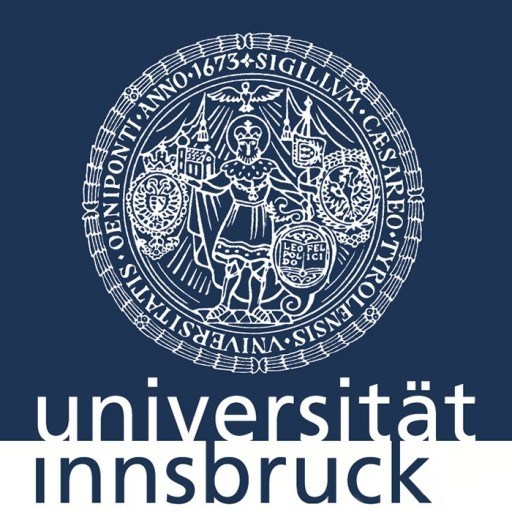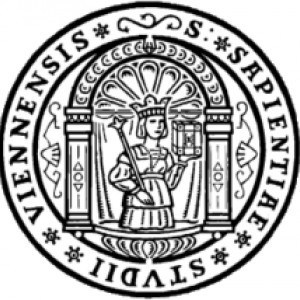Photos of university / #uniinnsbruck
The Bachelor's Degree Programme in Economics at the University of Innsbruck provides students with a comprehensive foundation in economic theory, quantitative methods, and their applications to real-world issues. The program is designed to equip students with the analytical and problem-solving skills necessary for understanding complex economic phenomena at both the micro and macro levels. Throughout the coursework, students are introduced to core topics such as microeconomics, macroeconomics, econometrics, and quantitative methods, as well as specialized fields like development economics, environmental economics, and public economics. The curriculum emphasizes both theoretical knowledge and practical skills, enabling graduates to analyze economic data, interpret economic policies, and make informed decisions in various professional settings.
In addition to rigorous coursework, students have the opportunity to participate in seminars, workshops, and internships that foster experiential learning and enhance employability. The program also encourages an international perspective, offering students the chance to engage with global economic issues and participate in exchange programs. Renowned faculty members, who are active researchers in their fields, provide high-quality instruction and mentorship. The university’s strong ties with the economic sector and policy institutions create valuable networks for internships and future employment. Upon completion of the program, graduates are well-prepared for careers in economics, finance, consulting, public administration, and international organizations, or for further academic study in economics or related disciplines. The Bachelor's in Economics at the University of Innsbruck aims to nurture critical thinking, ethical awareness, and a commitment to lifelong learning, preparing students to contribute meaningfully to economic development and societal progress.
Compulsory Modules
- Mathematics
- Statistics
- Econometrics
- Microeconomics
- Macroeconomics
- Game Theory
- Dissertation Seminar 1
- Dissertation Seminar 2
- Dissertation Seminar 3
- Elective Module
- Doctoral Thesis Defense
Dissertation
The dissertation is a piece of scientific work which serves to prove the student's ability to cope with scientific questions in an independent way.
The dissertation can consist of articles that are related in terms of subject matter or methods. In this case, the dissertation must consist of a minimum of three scientific articles. A minimum of two of these articles have to be accepted for presentation by a reviewed international conference. The latter is not necessary, if at least one scientific article has been published or has been accepted for publication in a journal with a journal ranking of at least "B" according to the Tinbergen Journal Ranking. The articles must be preceded by an introduction which explains how they are related in terms of subject matter or method. If the articles were written by several authors, the doctoral student's own contribution must be shown in the introduction, as well. In their expert opinions, the evaluators of the dissertation have to examine both the subject matter of the articles and adherence to the requirements of a dissertation which consists of several scientific articles as stated above.
The dissertation topic must be chosen from the field of economics.
The dissertation has to be registered at the university where the student is registered. The statutes of the corresponding university determine topic approval, supervision and evaluation of the dissertation.
After the positive evaluation of the dissertation, the programme must be completed with the Module " Doctoral Thesis Defence".
Requirements
- Completed a master's degree in a relevant related field.
- Proof of German language ability (level B2)
- Curriculum vitae,
- As well as (originals or officially certified copies):
- Notice (“Bescheid”) confirming awarding of bachelor’s degree,
- Diploma certificate,
- Diploma Supplement
- transcript (list of examinations completed).
- Examination Records
- Recognition of exams
- Declaration of Academic Honesty
- Submission of the Dissertation
- Application for the Dissertation's Defense
Financing for the Economics program at the University of Innsbruck is primarily covered through a combination of tuition fees, scholarships, grants, and student loans. As an international or domestic student, applicants should be aware that tuition fees are applicable depending on the student's nationality and the specific regulations governing higher education financing in Austria. Generally, students from the European Union or EEA member states benefit from lower or no tuition fees compared to non-EU/EEA students, who may be required to pay higher semester fees. The university also offers a range of scholarships aimed at supporting both Austrian and international students seeking to study Economics. These scholarships are awarded based on academic excellence, financial need, or specific criteria such as country of origin or field of study. Students are encouraged to apply early and provide the necessary documentation to be considered for financial assistance. Additionally, students may explore external funding opportunities, including government grants, private scholarships, and sponsorship programs from organizations supporting higher education. The university provides detailed guidance on available financial aid options through its dedicated financial aid office and online resources. Moreover, students can consider part-time employment opportunities available on or near campus to supplement their financing. Such jobs are often flexible to accommodate study schedules and can significantly ease financial burdens. In some cases, students may also access student loans, either through Austrian banks or international lending institutions, to finance their studies. It is advisable for students to carefully review the terms and conditions of any loan agreement, including interest rates and repayment obligations. Overall, while studying Economics at the University of Innsbruck entails certain costs, a variety of financial support options are available to help students manage their expenses effectively. Proper planning and early application for financial aid can greatly facilitate a smooth academic journey.
Economics at the University of Innsbruck offers a comprehensive and rigorous curriculum designed to equip students with a solid understanding of economic theory, quantitative methods, and practical application of economic analysis. The program aims to develop analytical skills, critical thinking, and knowledge of current economic issues on both a national and international level. Students benefit from a diverse faculty with expertise spanning microeconomics, macroeconomics, econometrics, and applied economics, ensuring a broad and in-depth learning experience.
The Bachelor’s program in Economics typically covers core topics such as microeconomic and macroeconomic theory, mathematical and statistical methods, and the basics of economic policy and business economics. The curriculum often includes modules on international economics, environmental economics, development economics, and labor economics, providing students with a well-rounded understanding of various economic sectors and issues.
Students are encouraged to acquire practical skills through workshops, seminars, and internships, which help bridge the gap between theoretical knowledge and real-world economic challenges. The program also emphasizes the development of analytical and computational skills using modern software tools, which are essential for data analysis and economic modeling.
The teaching approach combines lectures, tutorials, and project work, fostering an interactive learning environment. In addition to coursework, students are provided opportunities for research projects and participation in seminars that promote independent thinking and research skills. The program may also include specializations or elective modules, allowing students to tailor their studies to specific interests such as financial economics, public economics, or international trade.
Graduates from the Economics program at the University of Innsbruck are well-prepared for careers in economic analysis, consulting, public administration, and international organizations. Many alumni continue their studies at the postgraduate level or enter the business sector, research institutions, or governmental agencies. The university’s strong connections with local and international economic institutions offer valuable opportunities for networking and internships.
The program is typically structured to accommodate both full-time students and those who wish to study part-time, with a flexible curriculum design. International students are welcome, and the university often provides support services, including language assistance and orientation sessions, to facilitate integration into academic and social life on campus.
Overall, the Economics degree at the University of Innsbruck provides a robust foundation in economic theory and practice, fostering skills that are relevant for a wide range of occupations and further educational pursuits. The university’s focus on both theoretical understanding and practical application prepares students to meet the complex economic challenges of today’s globalized world.

